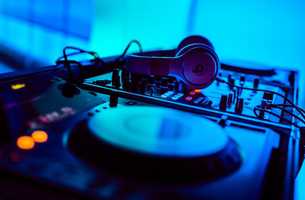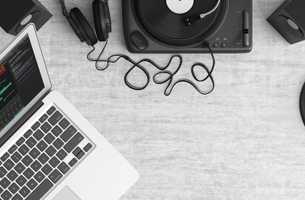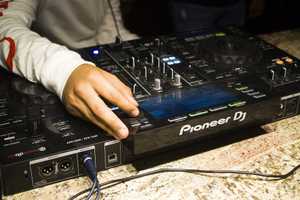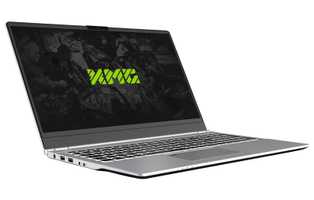How Much Power Does the DJ Equipmets Use?
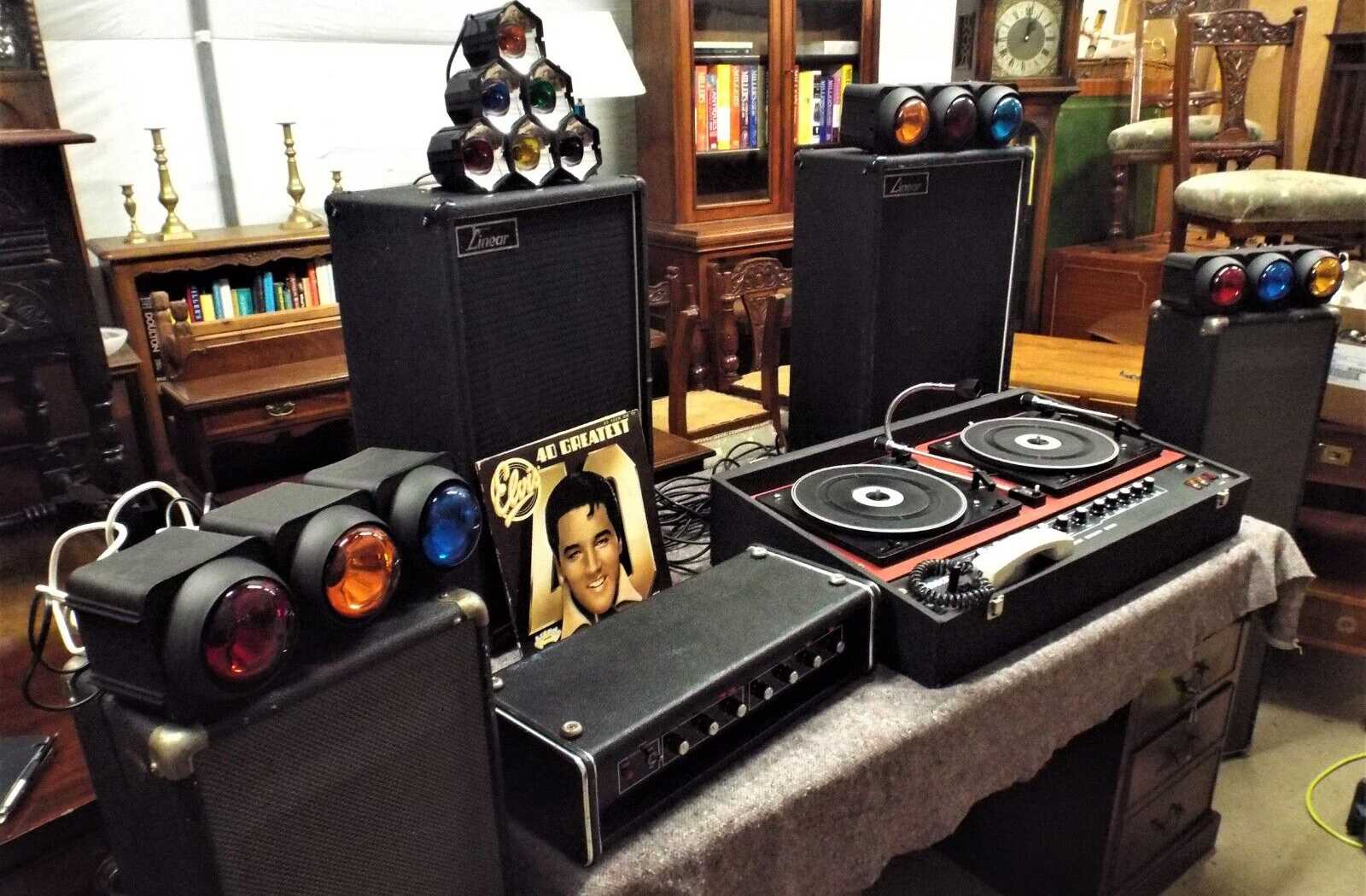
What is the average power consumption of a typical DJ setup?
It's difficult to determine the average power consumption of a DJ setup, as it can vary greatly depending on the specific equipment and how it is used. However, as a rough estimate, a typical DJ setup may require anywhere from 500 to 2000 watts of power.
To determine the power needs of your specific DJ setup, you'll need to add up the power consumption ratings of each of your pieces of equipment.
For example, if you have a DJ controller that requires 200 watts, a DJ mixer that requires 100 watts, and two DJ speakers that each require 300 watts, your total power needs would be 1000 watts.
DJ controller: A DJ controller is an electronic device that allows you to control and mix music using a computer or other audio source. The power consumption of a DJ controller will depend on the specific model and how it is used.
Here are three examples of DJ controllers and their power consumption ratings:
- Pioneer DJ DDJ-1000: 40 watts
- Numark DJ2GO2: 10 watts
- Denon DJ MCX8000: 15 watts
DJ mixer: A DJ mixer is an electronic device that allows you to mix and blend audio signals from different sources, such as turntables, CD players, or digital audio files. The power consumption of a DJ mixer will depend on the specific model and how it is used.
Here are three examples of DJ mixers and their power consumption ratings:
- Pioneer DJ DJM-900NXS2: 25 watts
- Rane Seventy-Two: 20 watts
- Allen & Heath Xone:43C: 25 watts
DJ speakers: DJ speakers are designed to reproduce sound and are an important part of any DJ setup. The power consumption of DJ speakers will depend on the specific model and how they are used.
Here are three examples of DJ speakers and their power consumption ratings:
- JBL EON615: 400 watts
- Mackie Thump TH-12A: 400 watts
- QSC K12.2: 500 watts
DJ headphones: DJ headphones are used to preview tracks or monitor the mix while DJing. The power consumption of DJ headphones will depend on the specific model and how they are used.
Here are three examples of DJ headphones and their power consumption ratings:
- Audio-Technica ATH-M50x: N/A (does not require power)
- Shure SRH440: N/A (does not require power)
- Pioneer DJ HDJ-C70: N/A (does not require power)
DJ lighting: DJ lighting is used to add visual effects to a DJ setup and can be an important part of the overall experience. The power consumption of DJ lighting will depend on the specific model and how it is used.
Here are three examples of DJ lighting and their power consumption ratings:
- American DJ H2O LED: 25 watts
- Chauvet DJ Obey 40 DMX Controller: 20 watts
- ADJ Inno Pocket Spot: 20 watts
DJ effects: DJ effects are used to add special effects to the audio signal and can be an important part of a DJ setup. The power consumption of DJ effects will depend on the specific model and how it is used.
Here are three examples of DJ effects and their power consumption ratings:
- Behringer FX2000 Virtualizer: 20 watts
- TC-Helicon VoiceLive 3 Extreme: 20 watts
- Electro-Harmonix Nano POG: 20 watts
DJ laptop: A DJ laptop is used to run DJ software and store audio files and may be an important part of a DJ setup. The power consumption of a DJ laptop will depend on the specific model and how it is used.
Here are three examples of DJ laptops and their power consumption ratings:
- Apple MacBook Pro: 15 watts
- Dell XPS 13: 10 watts
- Lenovo ThinkPad X1 Extreme: 15 watts
DJ interface: A DJ interface is a device that allows you to connect your DJ equipment to a computer and may be an important part of a DJ setup. The power consumption of a DJ interface will depend on the specific model and how it is used.
Here are three examples of DJ interfaces and their power consumption ratings:
- Native Instruments Traktor Kontrol S4: 10 watts
- Pioneer DJ DDJ-SB3: 10 watts
- Rane DJ MP2015: 10 watts
How much electricity does a sound system use?
The amount of electricity that a sound system uses will depend on the specific equipment and how it is used. In general, sound systems can use anywhere from 900 watts to 3500 watts of electricity, depending on the size and power of the equipment.
To determine the power needs of your specific sound system, you'll need to add up the power consumption ratings of each of your pieces of equipment.
For example, if you have a mixer that requires 200 watts, two speakers that each require 300 watts, and a subwoofer that requires 500 watts, your total power needs would be 1100 watts.
Keep in mind that these are just estimates, and the actual power consumption of your equipment may vary depending on the specific models and how they are used. It's always a good idea to check the manufacturer's specifications for the most accurate power consumption ratings.
Is it worth paying for a more efficient amp?
Whether or not it's worth paying for a more efficient amp will depend on your specific needs and budget. In general, more efficient amps tend to be more expensive than less efficient models. However, they may also offer a number of benefits that make them worth the extra cost.
Some of the potential benefits of more efficient amps include:
- Lower energy costs: More efficient amps use less electricity, which can result in lower energy bills over time.
- Longer battery life: If you're using a portable amp that runs on batteries, a more efficient model may have a longer battery life, which can be especially useful for long gigs or events.
- Reduced heat and noise: More efficient amps tend to generate less heat and noise, which can be especially important for sensitive audio applications or for use in small or confined spaces.
- Environmental benefits: By using less electricity, more efficient amps can have a smaller carbon footprint and may be better for the environment.
Of course, there are also potential drawbacks to consider when deciding whether to pay for a more efficient amp.
For example, more efficient amps may be more expensive upfront, and they may not offer the same level of power or performance as less efficient models.
Ultimately, whether or not it's worth paying for a more efficient amp will depend on your specific needs and budget. It may be worth considering the potential benefits and drawbacks and deciding which factors are most important to you.
Determining your power needs
Determining your power needs is an important step in setting up your DJ equipment or sound system.
By understanding the power requirements of your gear, you can choose the right generator or power source and set up your equipment safely.
Together, we'll explore how to determine your power needs and provide a real-world example to illustrate the process.
The first step in determining your power needs is to look for the wattage ratings of each of your pieces of equipment. You'll want to add up the wattage ratings of all your gear to get a total power requirement.
Some common pieces of DJ equipment, along with their approximate power consumption (in watts), include:
- DJ mixer: 50-300 watts
- DJ controller: 15-60 watts
- DJ turntable: 15-30 watts
- DJ CD player: 15-50 watts
- DJ laptop: 40-100 watts
- DJ speakers: 100-300 watts
- DJ lighting: 50-500 watts
For example, let's say you have the following equipment:
- DJ controller: 200 watts
- DJ mixer: 100 watts
- DJ decks (turntables): 150 watts
- DJ speakers: 300 watts (each)
- DJ subwoofer: 500 watts
- DJ laptop: 75 watts
- DJ lighting: 500 watts
To determine your total power needs, we'll add up the wattage ratings of all our equipment: Total power needs: 2025 watts
Now that we know our total power needs, we can choose a generator or power source that can meet those needs.
As a general rule of thumb, it's a good idea to choose a generator or power source that can provide at least 25% more power than your total needs. This will give you some headroom in case you need to power additional equipment or if your equipment requires more power than its rated wattage.
In our example, we calculated that we need 2025 watts of power. To be safe, we'll want to choose a generator or power source that can provide at least 2530 watts of power (2025 watts x 1.25).
When choosing a generator or power source, there are a few other factors to consider:
- Portability: If you plan on using your generator or power source for mobile DJ gigs, you'll need to consider its portability. Look for a model that is compact and lightweight, and consider the type of fuel it uses – gasoline generators are generally more portable than diesel generators, but they may be less efficient.
- Noise level: If you'll be using your generator or power source in a residential or commercial setting, it's important to consider the noise level. Some generators or power sources are louder than others, so be sure to choose a model that is appropriate for the location you'll be using it.
- Price: Finally, take the time to shop around and compare prices from different manufacturers and retailers. You may be able to find a good deal on a generator or power source that meets your power needs and budget.
By following these steps and considering the factors outlined above, you can determine your power needs and choose a generator or power source that is suitable for your DJ equipment or sound system.
It's important to remember that the power needs of your equipment may change over time as you add or remove gear, so it's a good idea to periodically reevaluate your power needs to ensure that you have a suitable power source.
Best Generator for your DJ Setup
Choosing a generator for your DJ setup is an important decision, as the right generator can provide reliable power for your gigs and events.
Here are some tips for choosing a generator and some examples of popular models that may be suitable for a DJ setup:
- Determine your power needs: The first step in choosing a generator is to determine the power needs of your DJ equipment. Look for the wattage ratings of each of your pieces of equipment and add them up. This will give you an idea of the total power your equipment requires. As a general rule of thumb, it's a good idea to choose a generator that can provide at least 25% more power than your total needs.
- Consider the generator's portability: If you plan on using your generator for mobile DJ gigs, you'll need to consider its portability. Look for a model that is compact and lightweight, and consider the type of fuel it uses – gasoline generators are generally more portable than diesel generators, but they may be less efficient.
- Consider the generator's noise level: If you'll be using your generator in a residential or commercial setting, it's important to consider the noise level. Some generators are louder than others, so be sure to choose a model that is appropriate for the location you'll be using it.
- Shop around: Finally, take the time to shop around and compare prices from different manufacturers and retailers. You may be able to find a good deal on a generator that meets your power needs and budget.
Here are some examples of popular generators that may be suitable for a DJ setup:
- Honda EU2200i: This compact and lightweight generator is powered by gasoline and can provide 2200 watts of power. It's relatively quiet and is popular among DJs and other professionals for its reliability and ease of use.
- Champion 100263: This portable generator is powered by gasoline and can provide 3500 watts of power. It's relatively quiet and features a convenient electric start.
- Briggs & Stratton P2200: This portable generator is powered by gasoline and can provide 2200 watts of power. It's relatively lightweight and features a convenient carry handle for easy transport.
In addition to these considerations, it's also a good idea to familiarize yourself with the safety features and maintenance requirements of your generator.
Make sure you understand how to properly operate and care for your generator to ensure its safety and longevity.
Finally, consider purchasing a generator with a warranty or service plan to protect your investment. This can provide peace of mind and give you access to professional support if you encounter any issues with your generator.
How much does it cost to run a DJ Setup for 12 hours of music?
The cost to run a DJ setup for 12 hours of music will depend on a number of factors, including the power consumption of your equipment, the cost of electricity in your area, and the type of power source you are using.
To determine the cost to run your DJ setup, you'll need to consider the following factors:
1. Power consumption: To determine the power consumption of your DJ setup, you'll need to add up the wattage ratings of each of your pieces of equipment. For example, if you have a DJ controller that requires 200 watts, a DJ mixer that requires 100 watts, and two DJ speakers that each require 300 watts, your total power needs would be 1000 watts.
2. Cost of electricity: The cost of electricity will vary depending on your location and the type of power source you are using. For example, if you are using a generator that runs on gasoline, you'll need to consider the cost of gasoline in addition to the cost of electricity.
3. Duration of use: To calculate the cost of running your DJ setup for 12 hours, you'll need to know how long you'll be using your equipment. In this example, we'll assume that you'll be using your DJ setup for 12 hours.
To determine the cost to run your DJ setup for 12 hours, you'll need to calculate the total power consumption of your equipment and multiply it by the cost of electricity.
For example, let's say your DJ setup consumes 1000 watts of power and the cost of electricity is $0.10 per kilowatt-hour. To determine the cost to run your setup for 12 hours, we'll need to do the following calculation:
1000 watts x $0.10/kilowatt-hour x 12 hours = $120
In this example, it would cost $120 to run your DJ setup for 12 hours. Keep in mind that this is just an estimate and the actual cost may vary depending on the specific equipment you are using and the cost of electricity in your area.
What is the difference between a watt and a VA rating?
Watts and VA (volt-amperes) are both units of electrical power. However, they are not the same thing, and it's important to understand the difference between them when choosing equipment or determining your power needs.
Watts (W) is a unit of real power, which is the power that is actually consumed by an electrical device. It is a measure of the rate at which energy is being used or generated.
VA (volt-amperes) is a unit of apparent power, which is the product of the voltage and current in an electrical circuit. It is a measure of the capacity of an electrical system or device to do work.
In general, watts are a more accurate measure of the power consumption of an electrical device, while VA is a more general measure of electrical capacity.
For example, a device that is rated for 1000 watts of power will consume 1000 watts of electricity when it is in use. However, the VA rating of a device may be higher than its wattage rating, as it takes into account the voltage and current requirements of the device.
When choosing equipment or determining your power needs, it's important to consider both the wattage and VA ratings of your equipment.
You'll want to choose a power source or generator that can provide enough wattage to meet the power needs of your equipment, as well as enough VA to accommodate the voltage and current requirements of your equipment.
Is it important to know how much power your DJ equipment uses than how many watts it is rated for?
Yes, it's important to know how much power your DJ equipment uses, rather than just relying on its wattage rating. The wattage rating of a piece of equipment is the maximum power it is designed to consume, but the actual power consumption of the equipment may be lower or higher depending on how it is used.
For example, if you have a DJ controller that is rated for 1000 watts, it doesn't mean that it will always consume 1000 watts of power. The actual power consumption of the controller may vary depending on how you are using it and what other equipment it is connected to.
By understanding the power consumption of your DJ equipment, you can make more informed decisions about your power needs and choose a power source or generator that is suitable for your equipment.
For example, if you know that your DJ controller consumes 500 watts of power when it is in use, you can choose a power source or generator that is capable of providing at least 500 watts of power.
It's a good idea to check the manufacturer's specifications for the most accurate power consumption ratings of your equipment. You can also use a watt meter to measure the actual power consumption of your equipment in real time.
This can be especially useful if you are using a portable power source, such as a generator, and want to monitor your power usage to ensure that you have enough power for your gigs and events.
Do DJs use amps?
Yes, DJs may use amps as part of their equipment setup. Amps, or amplifiers, are electronic devices that increase the strength of an audio signal and are used to drive speakers or headphones.
In a DJ setup, amps may be used to amplify the audio signal from the DJ mixer or other audio sources and drive the speakers.
There are several types of amps that DJs may use, including:
· Power amps: Power amps are designed to drive speakers and are typically used in larger DJ setups. They are usually more powerful than other types of amps and can provide the necessary power to drive multiple speakers.
· Preamps: Preamps are used to boost the signal from an audio source and provide additional processing capabilities, such as equalization or tone control. They may be used in conjunction with a power amp to drive speakers.
· Headphone amps: Headphone amps are used to amplify the signal for headphones and are typically used by DJs who want to preview tracks or monitor their mix before playing it through the main speakers.
· Audio interface amps: Some audio interfaces, which are devices that allow you to connect audio equipment to a computer, include built-in amps that can be used to drive speakers or headphones.
In addition to traditional amps, some DJs may also use powered speakers, which include built-in amplifiers and do not require an external amp.
Do amplifiers use a lot of electricity?
The amount of electricity that an amplifier uses will depend on its wattage rating and how it is used. Amps with higher wattage ratings will consume more electricity than amps with lower wattage ratings, but the actual power consumption of an amp may vary depending on the specific model and how it is used.
For example, an amplifier that is rated at 1000 watts may consume more electricity when it is driving large speakers at a high volume than an amplifier that is rated at 100 watts driving smaller speakers at a lower volume.
To determine the power consumption of an amplifier, you can check the manufacturer's specifications or use a watt meter to measure the actual power consumption of the amp in real time.
This can be especially useful if you are using a portable power source, such as a generator, and want to monitor your power usage to ensure that you have enough power for your gigs and events.
It's a good idea to choose an amplifier that is suitable for your power needs and budget and to consider the power consumption of your other equipment when determining your total power needs.
How many watts do you need for a Loud enough party?
The number of watts you need for a loud enough party will depend on a number of factors, including the size of the party, the acoustics of the venue, and the type of music you'll be playing.
You'll want to choose a sound system or DJ setup that is capable of providing enough power to fill the space with sound, but it's not always necessary to have the loudest or most powerful system.
Here are a few general guidelines for determining the wattage you'll need for a party:
· For small parties or events in a small space, such as a living room or backyard, a sound system with a wattage of around 500-1000 watts may be sufficient.
· For medium-sized parties or events in a medium-sized space, such as a hall or nightclub, a sound system with a wattage of around 1000-2000 watts may be necessary.
· For large parties or events in a large space, such as a concert venue or festival, a sound system with a wattage of 2000 watts or more may be needed.
What happens if the amp is not powerful enough?
If an amplifier is not powerful enough for the speakers it is driving, the sound quality may be affected. You may notice that the sound is distorted or that the bass or high frequencies are not as pronounced as they should be. In extreme cases, the amplifier may overload and shut down, or the speakers may be damaged.
To avoid these issues, it's important to choose an amplifier that is powerful enough for the speakers it is driving.
You'll want to choose an amplifier that is rated for at least as much power as the speakers it is driving, and it's generally a good idea to choose an amplifier that can provide at least 25% more power than the speakers' rated power handling.
For example, if you have a pair of speakers that are rated for 500 watts of power handling, you'll want to choose an amplifier that is rated for at least 625 watts of power.
This will ensure that the amplifier has enough power to drive the speakers without distorting the sound or causing any other problems.

